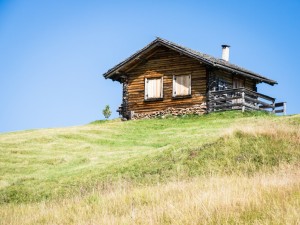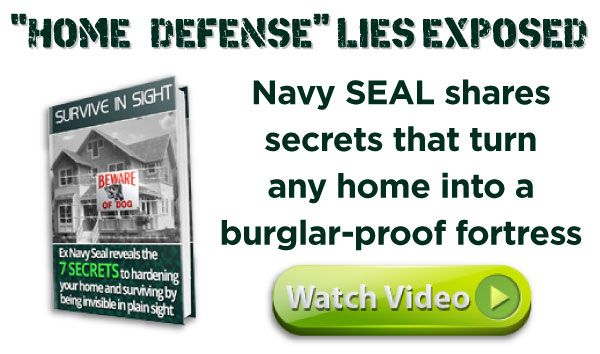 While you’re taking some time to review your preparedness plans for 2014, it’s crucial that you don’t make the #1 prepper mistake of all-time. It’s a very easy oversight to make, especially for survivalists…
While you’re taking some time to review your preparedness plans for 2014, it’s crucial that you don’t make the #1 prepper mistake of all-time. It’s a very easy oversight to make, especially for survivalists…
In fact, I think it may be a natural byproduct of the preparedness mindset. What is it?
Most of us dream of a remote cabin retreat, a “safe house” of sorts, where we can escape all the madness and civil unrest in the event of an extended crisis. We can almost smell the timber, the campfire… we can almost taste the fresh well water. We tend to get overly wrapped up in this bug-out fantasy that consumes 90% of our plan. It’s understandable…
It’s also the number 1 mistake that preppers make. The fact is that, in the immediate aftermath of a crisis, the chances are that you’ll be much safer, comfortable, and secure at your primary residence. Most people plan to head for the hills, but that gets them trapped in miles and miles of gridlock (because everyone else had the same idea).
If you’ve ever been caught up in hurricane evacuation gridlock, you have a good idea of what this might be like. Hours of bumper to bumper traffic, the roadside littered with broken down cars, running out of fuel in a massive traffic jam, these are only the slightest of consequences of trying to “bug-out” at the wrong time.
The Case for Sheltering in Place
While evacuating is the safest option in natural disasters like hurricanes, it’s NOT the safest option for all scenarios. In fact, it may increase your chances or getting stranded, encountering looters, being rounded up by FEMA agents, etc.
The route to your bug-out location may be drastically different in a crisis than it was in normal conditions. It’s critical that you get this information BEFORE you get stuck in whatever pitfalls may await you on the road.
Obviously, the place you know the most about, where your information network is the strongest, is at your home. Unless your home has been directly impacted by a natural disaster, there’s no reason to flee it in haste. Ideally, your family will be able to stay safe and secure in the home in which they’re most familiar.
The Biggest Mistake
These are exactly the reasons why I believe that the #1 prepper mistake of all time is failing to prepare for a shelter in place scenario.
It’s far more likely that you’ll have to wait out civil unrest, blackouts, supply shortages, and other emergencies from your home. It may be too dangerous to travel. Roads may be closed and/or impassible.
Having a complete stockpile of survival supplies in the home is the best disaster insurance plan I know of… because it’s the most likely plan that you’ll need to use.
While I don’t give our government officials much credit in the brainpower department, there’s a reason that they ordered Boston residents to “shelter in place” after the marathon bombing, rather than called for a mass evacuation. They knew that an unnecessary evacuation can lead to a situation that’s as bad as the initial emergency, or worse.
Even though many Americans haven’t done even a shred of disaster planning, they have a better chance of weathering a crisis safely within their home than on the road. Bugging out takes extraordinary levels of planning. Think about how much planning it takes to prepare for even a week-long vacation, then multiply that by 100…
The Pillars of a Good Shelter in Place Plan
So, what can you do to prepare your home to be a life raft in the turbulent aftermath of a crisis? If you can provide the three essential pillars of survival, you can shelter your family inside your home until the crisis abates, or until you’re able to safely relocate to your remote cabin.
Water – You’ll need at least a 14-day supply, 1 gallon per person per day.
Food – Survival food buckets are a costly but simple solution, but canned and shelf-stable foods are a much more common option. Remember that you can’t count on refrigeration during many crisis scenarios.
Security – If you can’t secure your family within your home, you must leave. It’s that simple. It doesn’t matter how much water or food you have stored away, safety is the most important asset to your family. Plan to keep a low profile, keep contact with friends and neighbors, and consider your options for confronting the most likely dangers.
AGREE OR DISAGREE? LET ME KNOW WHAT YOU THINK THE MOST COMMON PREPPER MISTAKE IS IN THE COMMENTS SECTION BELOW!


